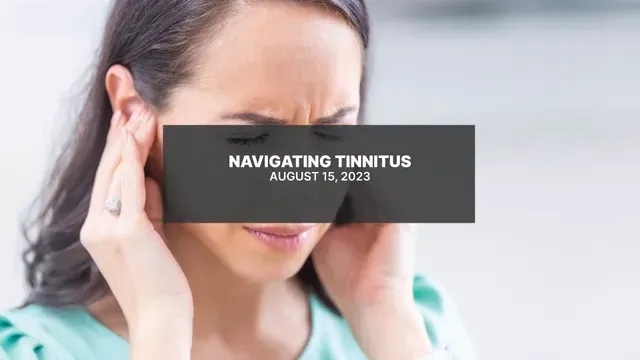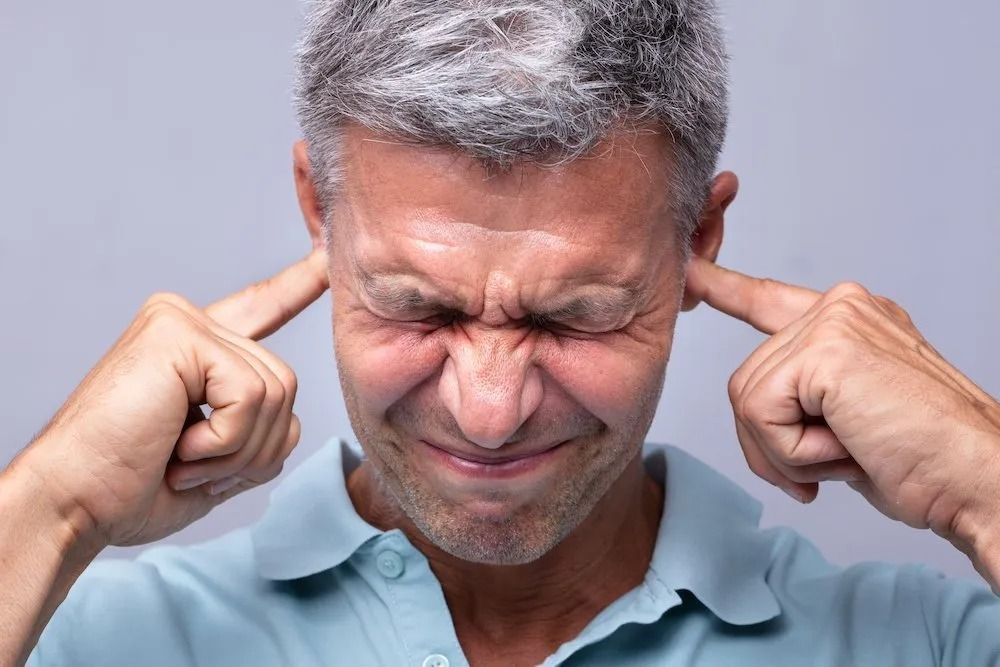Tinnitus Assessment & Management
Take control of the ringing in your ears with personalized tinnitus care from Johnson Audiology’s expert audiologists.
Find Tinnitus Relief in Tennessee & Georgia
Struggling with constant ringing, buzzing, or roaring in your ears? You’re not alone—and more importantly, you don’t have to live with it in silence. At Johnson Audiology, we specialize in evidence-based tinnitus management strategies designed to reduce the impact of tinnitus on your daily life. Whether your symptoms are mild or disruptive, our experienced audiologists will work with you to develop a personalized treatment plan. We proudly serve patients across
Chattanooga, Hixson, Franklin, Murfreesboro, TN, and
Cartersville, GA, offering compassionate care and proven solutions to help you find lasting relief.

Understanding Tinnitus: When Sound Doesn't Stop
Tinnitus is the perception of sound—such as ringing, buzzing, or clicking—when no external noise is present. For some, it's a mild background annoyance. For others, it's a constant presence that disrupts sleep, concentration, emotions, and quality of life.
- Tinnitus affects over 20 million Americans—and for 12 million, it’s severe enough to interfere with daily activities.
At Johnson Audiology, our team understands that no two tinnitus experiences are the same. That's why we offer personalized evaluations and evidence-based care tailored to your specific symptoms and lifestyle.
How Tinnitus Is Affecting Real Lives—And Possibly Yours
You're not imagining the impact tinnitus has on your life. Here’s what many people just like you experience:
Trouble Concentrating
16% of individuals say tinnitus interferes with their ability to focus.
Difficulty Sleeping
18% report that tinnitus affects their sleep—especially in quiet environments.
Disrupted Quiet Activities
Tasks like reading or relaxing become frustrating.
16% rate their tinnitus as “severe.”
Avoiding Social Settings
Many of the
20 million people with chronic tinnitus shy away from gatherings due to the stress or frustration it brings.
Constant Awareness
30% classify tinnitus as a “moderate” to “very big” problem in their daily life.
Stress and Anxiety
13% report feeling anxious due to tinnitus. It’s also linked to depression, irritability, and in severe cases, suicidal thoughts.
A Vicious Cycle with Stress
Stress worsens tinnitus—and tinnitus increases stress—creating a loop that affects sleep, emotions, and focus.
If any of these challenges sound familiar—even occasionally—your tinnitus is having a real impact on your daily life. The good news? You don’t have to manage it alone. We’re here to help.
At Johnson Audiology, we don’t take a one-size-fits-all approach. During your tinnitus evaluation, your audiologist will:
- Ask how your tinnitus sounds and how often you hear it
- Determine whether it’s constant or triggered by specific situations
- Explore how it affects your concentration, sleep, mood, and routine
- Assess hearing loss, a common contributor to tinnitus
We use this information to build a care plan tailored specifically to you—grounded in clinical best practices and real-world relief strategies.
Personalized Tinnitus Evaluations in Tennessee & Georgia
Evidence-Based Strategies for Managing Tinnitus
Hearing Aids
Most tinnitus cases are linked to hearing loss. By restoring access to natural sound, hearing aids help the brain stop "filling in the silence" with ringing or buzzing. Around 70% of patients experience relief with hearing aids alone.
Sound Therapy
We use external sounds—like white noise, nature sounds, or music—to reduce your perception of tinnitus. This can be done through hearing aid programs, mobile apps, or standalone sound generators. These tools are also helpful for sleep and relaxation.
Behavioral Therapy
Tinnitus is more than a sound—it often triggers emotional responses like anxiety or depression. Behavioral strategies, including Tinnitus Acceptance Therapy (TAT) and Mindfulness-Based Stress Reduction (MBSR), can help you reframe and control your response to the sound.
General Wellness Support
Managing stress and promoting emotional health are crucial. Simple lifestyle changes—like exercise, meditation, and staying socially active—can reduce the intensity of tinnitus over time. Your audiologist will help guide these efforts.
Drug Therapy (If Needed)
No FDA-approved medication exists specifically for tinnitus, but treating related conditions like anxiety, depression, or insomnia with medication may help reduce symptoms. We can coordinate care with your primary provider or mental health specialist if needed.
Medical or Physiological Treatments
In some cases, tinnitus is linked to TMJ (jaw joint) dysfunction, head/neck injuries, or medication side effects. Your audiologist can help identify these issues and refer you to a specialist—such as a dentist or physician—for collaborative care.
Trusted Clinical Guidelines & Resources
At Johnson Audiology, we follow research-backed guidelines from:
American Tinnitus Association (ATA): The nation's foremost and trusted organization committed to finding cures for tinnitus and hyperacusis. Read a complimentary issue of Tinnitus Today from the American Tinnitus Association.
National Institute for Health and Care Excellence (NICE): An independent U.K. organization that provides evidence-based recommendations for tinnitus assessment and management. Read guidelines here to learn how healthcare professionals support patients with tinnitus.
FAQs About Tinnitus Management
What causes tinnitus?
Tinnitus can be caused by a variety of factors, including hearing loss, noise exposure, earwax buildup, certain medications, jaw joint (TMJ) issues, head or neck injuries, and circulatory disorders. In many cases, tinnitus is associated with some degree of hearing loss, even if it’s mild. Your audiologist will help determine the most likely cause during your evaluation.
Is there a cure for tinnitus?
Currently, there is no universal cure for tinnitus, but it can be effectively managed with the right treatment plan. Many patients find relief through a combination of hearing aids, sound therapy, behavioral techniques, and wellness strategies. Our goal at Johnson Audiology is to reduce the impact tinnitus has on your daily life.
Can hearing aids help with tinnitus?
Yes—about 70% of people with tinnitus report relief when using hearing aids. By restoring access to missing sounds, hearing aids reduce the brain's need to "fill in the silence" with ringing or buzzing. Many modern hearing aids also include built-in sound therapy features designed specifically for tinnitus management.
Why does my tinnitus get worse when I'm stressed?
Stress and tinnitus are closely connected. Stress can intensify your awareness of tinnitus, and tinnitus can, in turn, increase your stress levels—creating a frustrating cycle. This is why relaxation techniques and stress management are important components of a successful tinnitus care plan.
How do audiologists treat tinnitus?
At Johnson Audiology, our audiologists use a combination of sound therapies, hearing aid technology, counseling, and personalized strategies based on your specific symptoms. We may also collaborate with other healthcare professionals—such as ENT specialists or behavioral therapists—to ensure a well-rounded approach.
When should I see someone about my tinnitus?
If tinnitus is persistent, interfering with your sleep, concentration, mood, or quality of life, it's time to get evaluated. Early intervention helps prevent the condition from worsening and can significantly improve your ability to manage it over time. Book a tinnitus assessment to get started.



